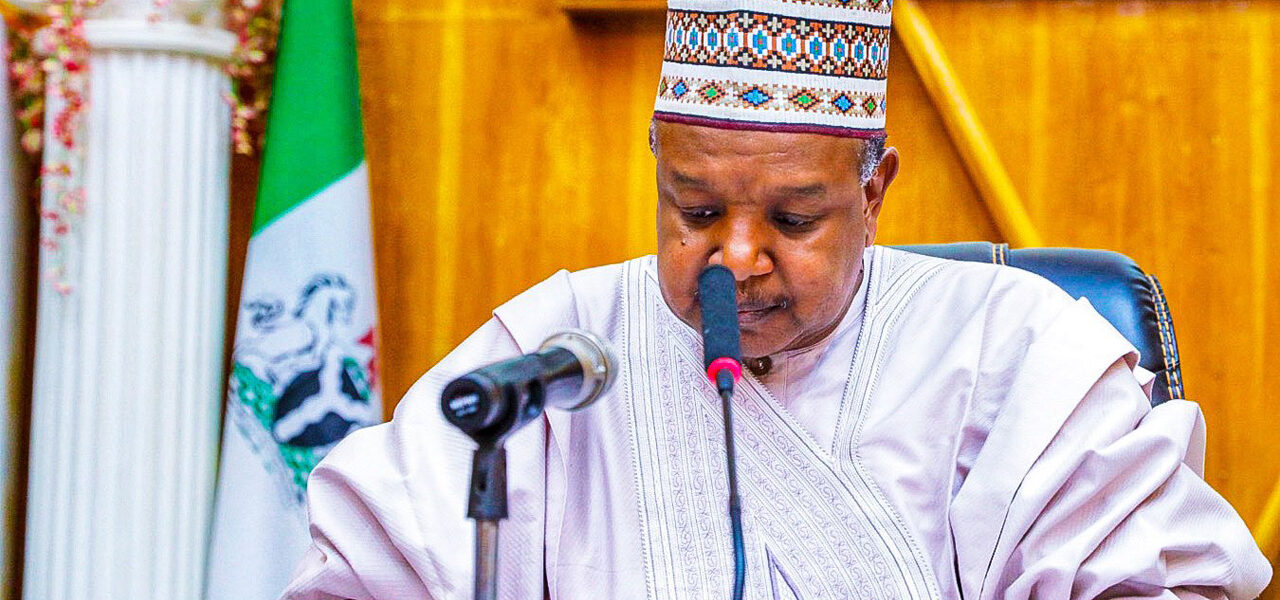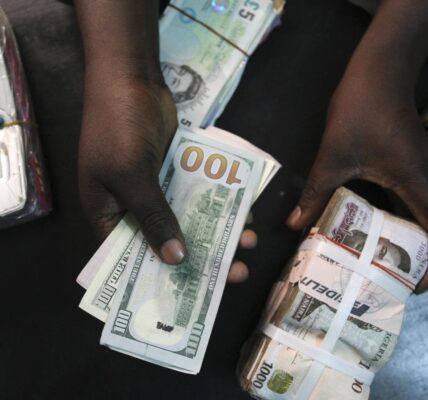
THE Federal Government is planning to invest $100bn annually to tackle the economic challenges in Nigeria, the Minister of Budget and Economic Planning, Atiku Bagudu, declared on Wednesday.
Bagudu also said the recent nationwide protest against the bad governance in Nigeria has forced government officials to listen more and do better.
He said though the current economic situation is due to cumulative years of under-investment, the current administration is ready to rewrite the wrongs to improve the country in the next 25 years.
This came as the Chief of Staff to the President, Femi Gbajabiamila, said the country was battling various socio-economic challenges that threatened the existence of a national union.
The two government officials spoke at the National Economic Dialogue 2024 organised by the Nigerian Economic Summit Group on Wednesday in Abuja.
The event attended by leaders, policymakers, experts, and key stakeholders under the theme “Nigeria’s Economic Future: 25 Years of Democracy and Beyond”, was to reflect on the nation’s economic journey since the return to democratic rule in 1999.
In his address at the event, Bagudu revealed that the Federal Government was targeting $100bn annual investments to boost the Nigerian economy.
“We want a nation that includes all. We want a higher per capita by the year 2050. We want to ensure that we invest not less than $100bn annually. But if our experience in the last 25 years should serve us as a guide, we sometimes know how difficult it is because you have to make choices that are both pleasant and unpleasant to be able to mobilise capital, private and borrowed capital, to support our aspiration. We need more public resources to fund our priorities.
“So, even in a constitutional democracy, where all tiers are separate, our constitution and our planning process require a minimum of cooperation between the levels of government and the private sector.
“We have lived with oil subsidies, for example, for decades. And it has harmed us, even when oil prices once went up to $147 in our national life. The net effect on the federation’s revenue, or the availability of investment money to support, was almost nil because the higher the oil prices, the more the then President Jonathan’s government was spending to support subsidies.
“So, we have been living a lie. So, as unpleasant as it is, President Bola Tinubu said let’s begin to tell ourselves the truth that we are not as rich as we think we are. It’s not a shame. Countries that have done that thinking and established that truth much earlier than us have made choices that have taken them where they want to be.”
The minister further highlighted the root cause of stunted national growth, noting that more public funds were needed to address the country’s priorities.
He said, “President Tinubu has been very reluctant to reflect on the past and blame anybody, but the net effect is that despite efforts by previous administrations, especially in the last 25 years, we are not where we want to be.
“So, what do we do? It’s not because of anyone’s failing, but that is our reality. We have yet to achieve the income per capita that we require, and it’s not for lack of trying but for lack of success.
“Our population has grown from 119 million in 1999 to about 230 million, almost double. Still, our oil production, for example, 2.2 million barrels in 1999, is now rather than four million, according to the doubling of our population, which is still under 1.5 million, reflecting cumulative years of underinvestment in the sector. So, our reality is that we are not where we want to be.”
On his part, the Chief of Staff to the President, Gbajiabiamila, sought stronger collaboration with the government.
He said, “At this moment, we are sailed on all sides by various socio-economic challenges that threaten the very existence of our national union. However, it is also a time of great opportunity when we can choose to answer the unsettled questions of our nationhood, and in doing so, free our people to thrive here at home in a manner unlike ever before.”
The Minister of Finance and Coordinating Minister of the Economy, Mr Wale Edun, said the country must continue to strive and remain on the path of prosperity to achieve the necessary results.
He said that in 25 years of democracy, the country is still trying and must remain on the path of growth.
“Democracy may not be the only form in which to organise a society, but I think all of us agree that it is the best. And it’s always a work in progress, trying to improve our democracy. And, indeed, today’s dialogue is an effort in that direction.
“Overall, inflation has started coming down. And we are planning on maintaining that trajectory of downward inflationary trend, and overall reduction in food inflation. More availability of food at affordable prices is the goal of the administration in the immediate term,” Edun said.













